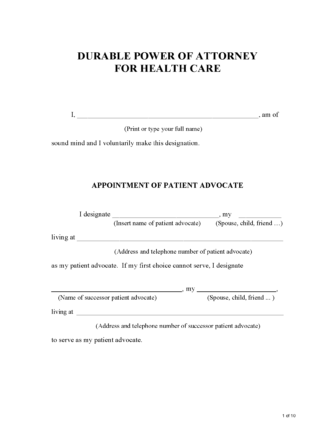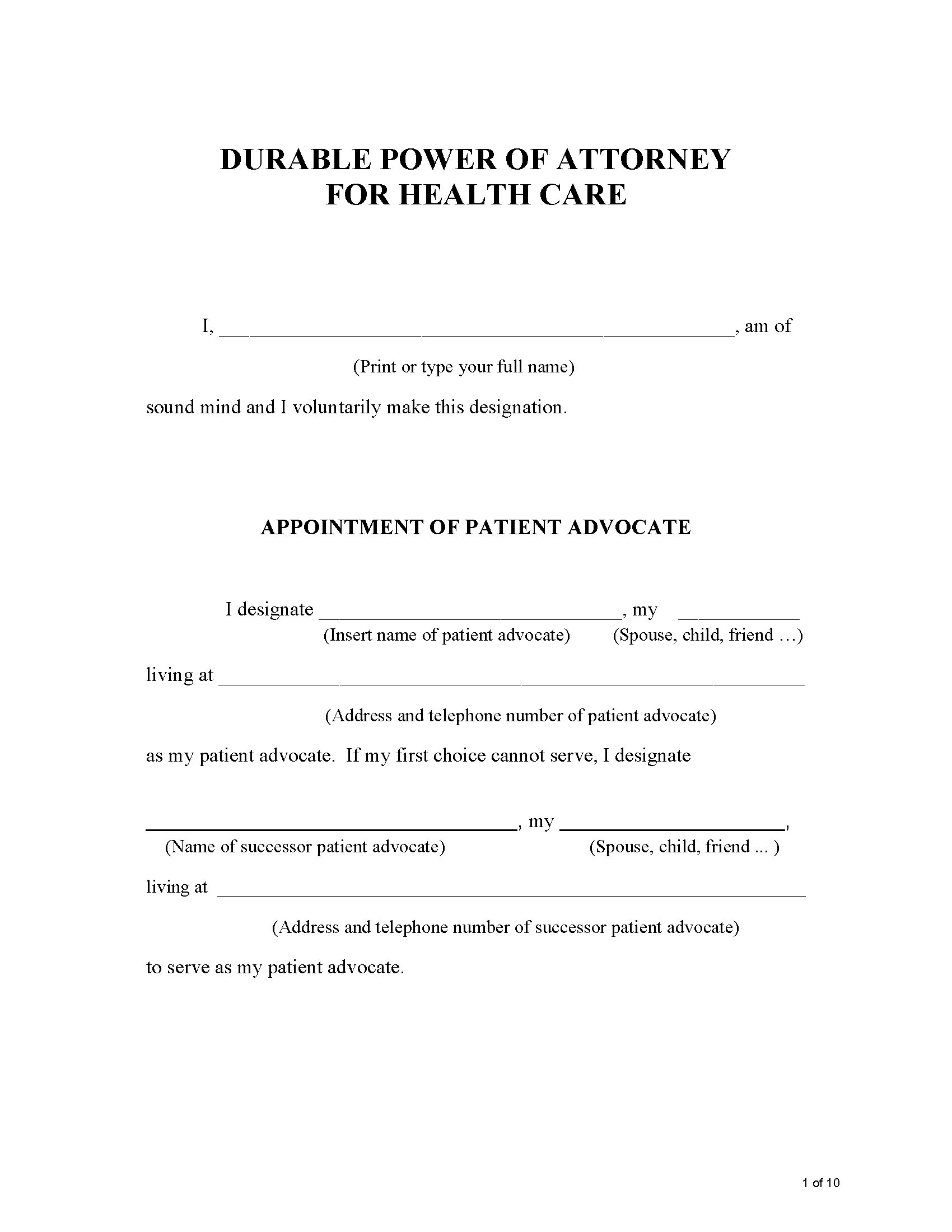Signing Requirements
The principal must sign the power of attorney in the presence of two witnesses, who must also sign the document.[1] The witnesses may not be:
- Related to the principal.
- The principal’s physician or patient advocate.
- Any of the principal’s heirs or devisees.
- An employee of the elderly home where the principal resides.
- An employee of the life or health insurance company the principal has a policy with.
- An employee of a community mental health program or a health care facility providing the principal’s care.
Power of Attorney (Preview)
Revocation
The powers of patient advocate may be revoked in several ways[2]:
- The principal’s death.
- A probate court order.
- An occurrence which triggers a revocation condition contained in the form.
- The principal clearly communicates their intent to revoke.
- Divorce, separation, or annulment if the principal’s spouse is the health care agent.
- Resignation of the patient advocate or removal by court, unless a successor agent is named.
Patients have the right to revoke their patient advocate at any time, regardless of their ability to actively engage in choices about their medical treatment.

